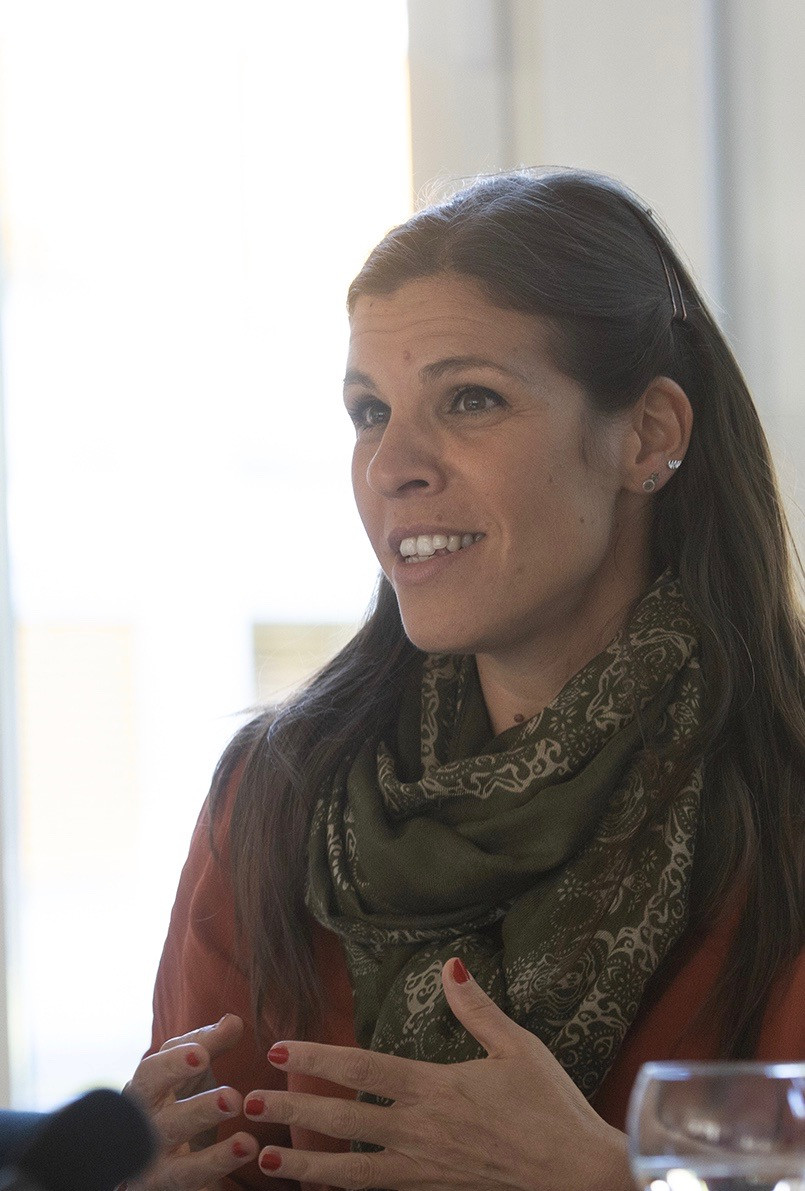European populists exploit climate view divide between city and countryside – researcher

***Please note: This article is part of a dossier on the impact of rising populism on climate efforts in Europe.***
Clean Energy Wire: Right-wing populist parties have seen vast electoral successes in Europe in recent years, and populist parties opposing strong climate action are expected to score well in two-thirds of EU member states at the European Parliament elections in June this year. Does this trend mean that the continent will experience a complete overhaul of its policies?
Daphne Halikiopoulou: First, let me emphasise that the electoral successes of these parties are not new. In France in the early 2000s, the then still-called Front National made it to the second round of presidential elections, in the Netherlands there was Pim Fortuyn, who is in a way the predecessor of far-right politician Geert Wilders, and the FPÖ party in Austria was in government around the same period. However, we have seen a sharp rise in their electoral popularity since 2014.
What is new or newer is that we are seeing more of these parties in government, both alone and in coalitions. This is not only because more voters have voted for them, but also because mainstream parties have opened their doors and are willing to collaborate. All over Europe, for example in Italy, in Hungary, until recently in Poland, and in many Scandinavian countries, the far-right is in government or somehow supports minority governments or coalitions. This means that these parties are in a better position to implement legislation and policies. What we also see is that even in countries where they do not govern, these parties are the credible competitors that everyone is talking about.
This trend is likely to continue with the European Parliament elections in June. Especially as the centre-right European People's Party (EPP) — likely to remain the largest fraction in the European Parliament — no longer rules out alliances with populist forces.
How do you explain the willingness of mainstream parties to open the door to collaboration?
Far-right populist parties have become smarter at maintaining a façade of normalisation. They have long been best known for their anti-immigration views; they are associated with this issue and focus on it the most. What is changing is that these parties have broadened their spectrum to other issues such as the economy, welfare and climate change.
One of the biggest challenges for right-wing populist parties is the need to present a united front in an attempt to normalise and implement their far-right ideas. However, these parties are extremely divided both among themselves and from within. A recent example was the row between French far-right leader Marine Le Pen, calling out the German AfD over its “remigration” controversy. Maintaining a united front will be a struggle in the run-up and after the EU parliamentary elections.
Despite this attempt at normalisation, it is important to note that these parties are inherently authoritarian. They suggest that there is such a thing as "the will of the people", which may be perceived as inclusive, because who doesn't want the will of the people to be carried out? But by doing so, populists eliminate the idea of a minority, the idea of consensus, and they eliminate the procedural idea of liberal democracy of having intermediate institutions to represent different preferences.
In Germany we saw the controversial heating law, strongly opposed by the AfD, and all over Europe, farmers are protesting to limit environmental regulations. What is the next issue you think will come to the surface and what will be the role of populism?
The upcoming climate backlashes we will face will be along the lines of a centre-periphery divide in Europe, especially in Western Europe. Research shows that wealthier voters living in cities are more supportive of climate action and environmental protection, while people in rural areas feel that they are the ones who bear the brunt of these policies. In the countryside, people often need their cars more to get around or have to heat a bigger house than people living in cities. This will divide voters, so it is important to see how a just transition takes shape and what the compensation will be for people who lose out due to climate measures.
One development the literature points to is that people are divided on natural disasters. It is assumed that if communities experience floods or fires, they will be more supportive of climate action. However, research findings vary on whether this is true. Not much data is available yet and it seems to vary from country to country. So, an emerging topic in academic research is linking extreme weather events to voter preferences.
"Climate policy may receive broad support from the general population, but it is also more likely to receive concentrated opposition from rural communities on specific policies."
You mentioned the sharp rise in electoral popularity of right-wing populist parties since 2014, why do voters vote for these parties? Are they motivated by anti-climate action views?
Voters are never a singular group, so you have different types of right-wing populist voters. On the one hand, you have what we call the ideological voters. These are the hardline supporters who support the far-right for ideological reasons. But that is a small group. The majority of voters are what we call protest voters who are disappointed with mainstream politics. Anti-climate positions are likely to come from protest voters who feel they are losing out economically. Climate policy may receive broad support from the general population, but it is also more likely to receive concentrated opposition from rural communities on specific policies. A good example is the farmer protests that have taken place across Europe in recent months.
Who are these voters?
In many cases they are voters who have switched from the centre-right. The centre-right and far-right often compete for greater voter appeal. To a much lesser extent, some far-right voters have switched from the left, and these are mostly protest voters.
As centre-right parties increasingly compete with the far-right, we see them toughening their positions on immigration. The problem with echoing far-right sentiments is that it only yields short-term gains, but in the long run it has the unintended effect of exploding support for far-right parties. The UK is a good example where the Tories moved ideologically to the right to compete with the populist party UKIP. While this initially won them some victories, a recent Ipsos poll shows that they are on a record low approval rate of 20 per cent.
Populist parties tend to frame their climate concerns mainly in the socio-economic sphere. What are their proposed solutions? What can we expect when populist parties gain more governing power?
There is a big difference between Western and Central-Eastern Europe. Fidesz in Hungary and PiS in Poland are attacking liberal democratic institutions, creating democratic backsliding. Even with the recent change of government in Poland it is very difficult to reverse some of these policies. Constitutional changes are made that are designed to outlast the government of today. In Western Europe it is more complicated because these parties have to collaborate more actively in coalitions and because the institutions are more resilient because they have existed for longer so it is more difficult to change them.
The solutions proposed by populist parties are all nationalist-driven. For example, they support welfare state chauvinism as a means of reserving social services and state public goods only for natives. However, many policy proposals of far-right populists are not plausible. It is therefore important to keep an eye on their policy implementation once they are in power, as they have often have to tone down their initially strong narratives.

